The weather forecast for today was promising (meaning: no rain, if also no sunshine) so we set off for a ramble to the medieval town of Provins, about an hour away. For once the forecast was accurate, and we had a fine day; well, we didn’t get rained on. First, we visited St. Loup-de-Naud, a tiny little town near Provins.
St. Loup-de-Naud
I wish I had some history of this tiny town. It has a grand total of 894 inhabitants, and an over-sized church. The church was built by Henri “the Liberal” who lived in the mid-1100s and was Count of Champagne. Somehow relics associated with St. Loup (I know nothing about him) had arrived in this town and Henri wanted a church to venerate them. So he funded this church.
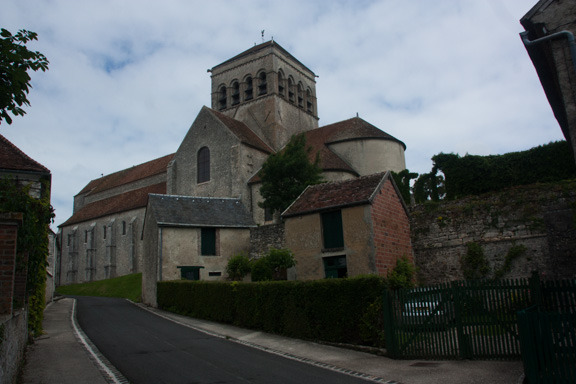
Unfortunately the church was closed; a sign on the door from the City Hall dated two years ago said that it would be closed “until further notice;” no reason given.
But the town of St. Loup-de-Naud was beautiful, and a little mystifying. Every house in it was beautifully maintained; not one ringer. Most towns have a mixture of houses, from some big and beautiful and well-maintained to small and not-so-well-kept-up. We have no idea why this tiny place had residents with the money and inclination to keep every single house beautiful. Here are some pictures of St. Loup-de-Naud.
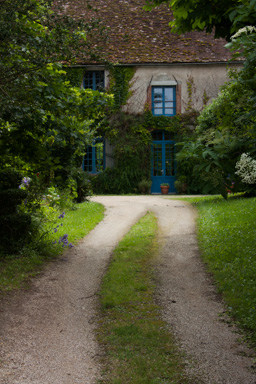
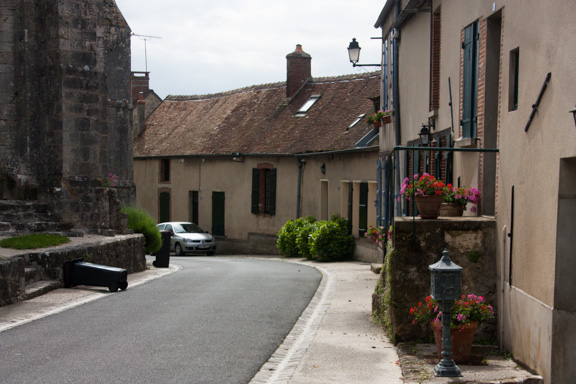
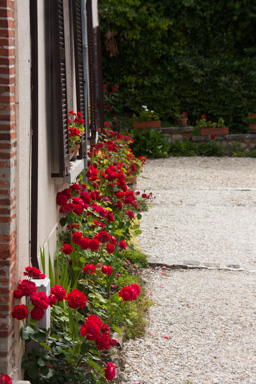

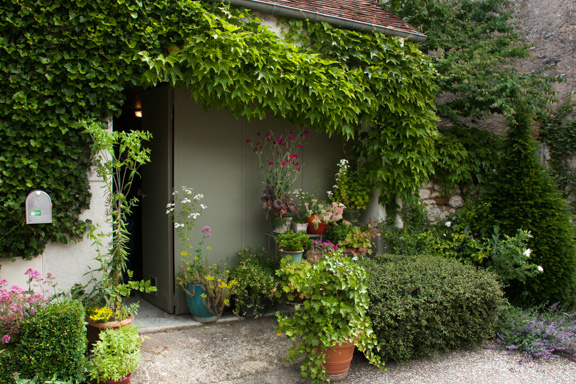
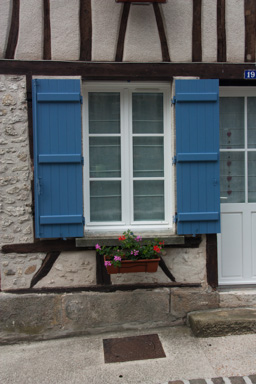
Provins
Provins is a medieval town that realized it had an attraction: being a medieval town. Older guidebooks describe it as “picturesque town that has retained its rural feel.” Well, maybe not so much. Since that was written 35 years ago, Provins has drawn on its charms and become a tourist destination. So it wasn’t quite the pristine medieval city we’d expected. But it is still interesting and worth seeing.
Now, the first surprise was that Provins was full of elementary school kids. This is the last week of school in France, and evidently it’s also school-trip week. There were thousands of kids here. Actually, it was kind of a kick to see them all.
As we always like to do, Laurie and I found a small path around the lower part of the town and walked it. We wondered where (and if) it was going to end. Finally we saw a couple stairs to a doorway in the back a series of houses that formed a wall. Up the stairways, through the doorway, and here is what we saw:
Provins has a most interesting church. The same Henri the Liberal mentioned in the St. Loup comments built St. Quiriace; well, he started it. A bit of church architecture will help explain this church.
Medieval churches were generally built in the shape of a cross. The top part of the cross is the Choir; here is – you guessed it – the choir, and also the altar. The Nave is the bottom part of the cross, below the cross-arm; it’s here that the congregation sat for masses. Then there are two Transepts, each one of which makes up one side of the horizontal arm of the cross. They all meet at the Crossing, which usually has a dome or steeple on it.
Now this church, St. Quiriace, got started right. Henri the Liberal built a big Choir:
Then something went awry and construction stopped, for four hundred years. Then the Nave was added, but it was only a pretend nave, maybe 40 feet long. The church should have had a Nave several hundred feet long, with maybe fifteen bays (arches along the side walls) but this one stopped at two bays.
Construction was again delayed, but this time for only three hundred years. Then the transepts were built, except they aren’t really Transepts, but stubs where Transepts were to be built someday.
It appears that no one has been in a great hurry to finish St. Quiriace, as today, 400 years after the last “temporary” part was built, the church remains uncompleted. I’m thinking it may not get done soon.
Provins has beautifully maintained fortifications. We walked in what was once the moat.
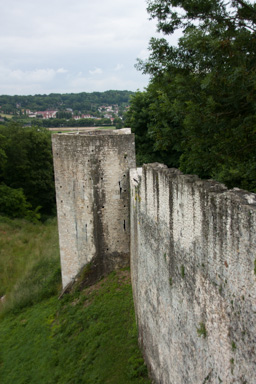
In all, a rewarding visit and a nice day. But we were glad to get back to Montigny and a glass or two of rosé!

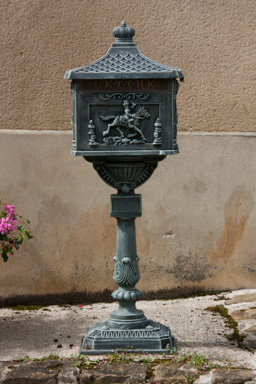
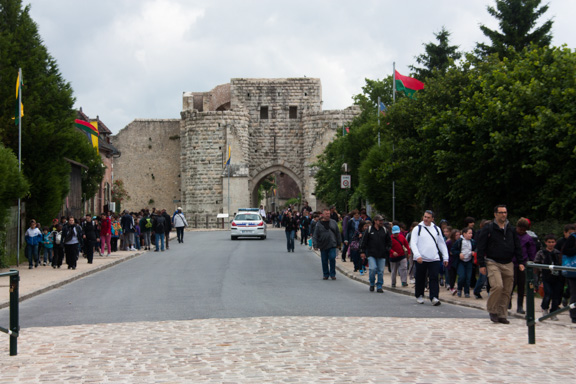
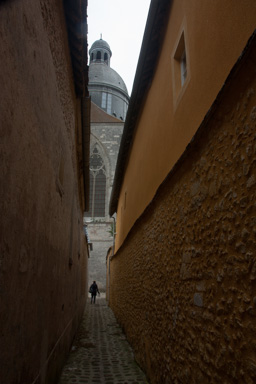
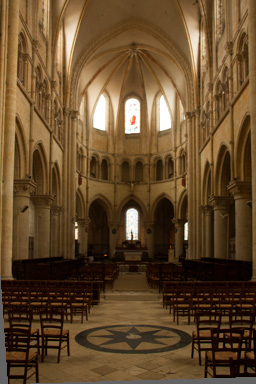
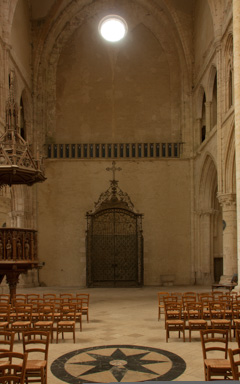
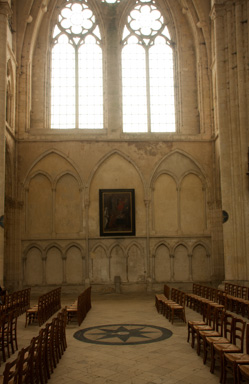
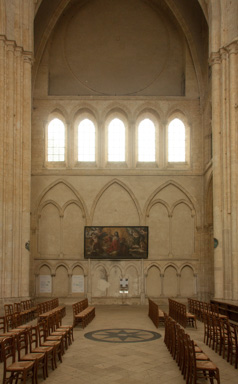
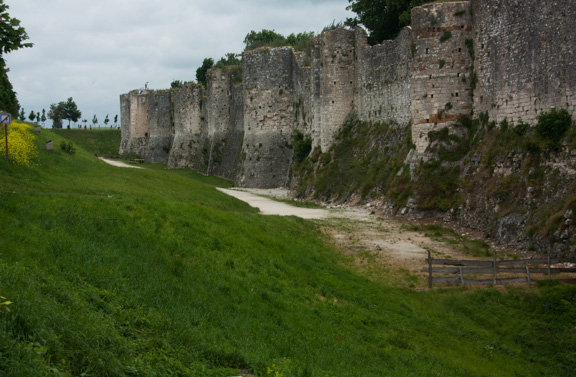
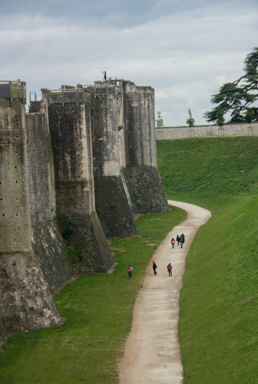
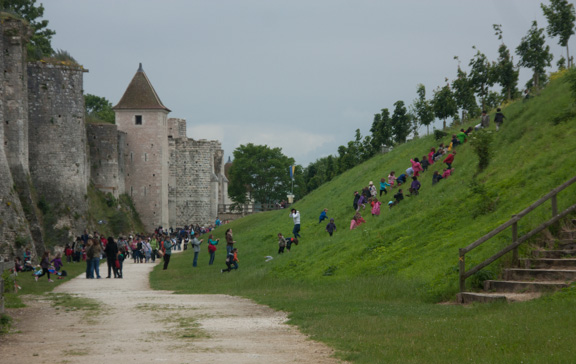
Wow, some great photos! That wall!